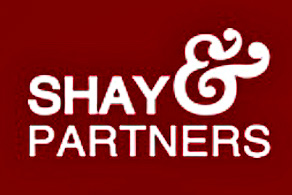
- Artist : Mr. Chau-yih Yu
According to statistics released by the National Communications Commission (NCC) in June 2011, the mobile phone subscriber base in Taiwan was 27.33 million or 117.9 subscribers per 100 people as of the end of May 2011 – a 4.9% increase as compared with the end of the same month in 2010. Mobile operators have been proactive in encouraging second-generation (2G) network subscribers to upgrade to thirdgeneration (3G) networks, and in promoting 3G mobile internet access. The 3G subscriber base has reached 19.57 million, which is around two and a half times the size of the 2G subscriber base, making 3G the mainstream mobile communications
service on the Taiwan market. All four licensed GSM operators in Taiwan – Chunghwa Telecom, FarEasTone, Taiwan Mobile and Vibo – plan to expand part of their networks and base stations to High Speed Packet Access Plus (HSPA+) in order to provide 21
megabits per second (Mbps) high-speed internet access to accommodate evergrowing mobile internet access demands. Meanwhile, they are also seeking to remove the tight tariff cap imposed by the NCC (currently, the monthly all-you-can-eat tariffs for High Speed Packet Access (HSPA) internet access approved by the NCC range from NT$700 to NT$850) in order to prevent heavy mobile internet users from occupying too much bandwidth. The operators are seeking to introduce differential pricing while increasing mobile data revenues.
According to statistics released by Chunghwa Telecom, around 10% of heavy mobile internet users occupy over 80% of network resources. As part of a plan to move away from the existing system, where one fixed price is payable for unlimited mobile internet
access service, towards a differential pricing structure, Chunghwa Telecom – the largest mobile operator in Taiwan with a market share of more than 35% – proposes that mobile internet subscribers that download more than 5 gigabytes (GB) per month be deemed to have exceeded a reasonable scope of mobile internet access and thus be charged a higher all-you-can-eat tariff, while subscribers that download less than 5GB of data will be deemed to engage in reasonable use and will pay the original allyou- can-eat monthly tariff.
behaviour.
groundless until the facts can be backed up with actual data. The NCC has also warned that consumer complaints would surge if operators were to charge higher tariffs for internet access, but failed to guarantee bandwidth.
Chunghwa also announced that all 2G and 3G subscribers would be provided with 30 hours of WiFi internet access – beginning in August until the end of next year – and that an 80% discount would apply to the all-you-can-eat monthly tariff for mobile internet
subscribers whose data transmission volume does not exceed 1GB.
The materials contained on this website are for general information purposes only and are subject to the disclaimer.

